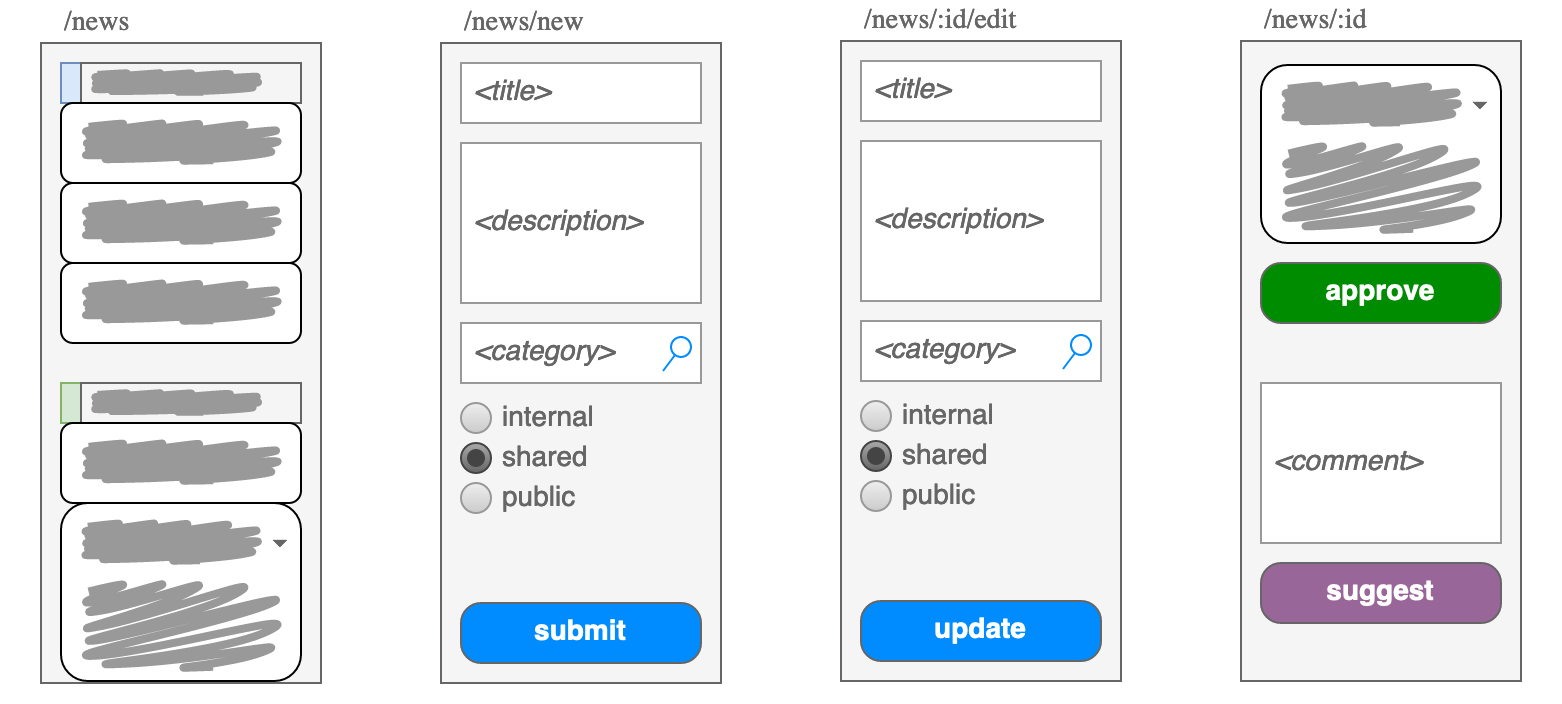churnal: Digestible News
I’m occasionally reminded of this and still believe it could prove useful in other contexts – so it seems worth writing down: Below is a version of what I’d proposed to the team at the time.
Lately, I’ve come to appreciate ORF’s news feed (works best on small viewports 🙃 ) as a comparatively simple/efficient/unobtrusive way to get a sense of the world: a single no-frills page with concise headlines and a low-friction mechanism to reveal brief descriptions.
Something similar might be useful for teams to casually keep each other informed without having to invest significant energy/time – which includes avoiding the trap of turning everything into a discussion, as often happens with chat and microblogging.
Fairly simple tooling could allow everyone to post a news item, with the explicit goal of keeping things concise – though without having to write an elaborate article every time; shared context would develop over time. Naturally, categories (or tags) could be used for grouping; that seems to work quite well for ORF there.
I imagined this to look somewhat like this:

Note that this mock-up implies an approval queue: The idea was to encourage and teach each other to really be concise, much like journalists/editors certainly do at ORF.
A simplistic prototype helped me get a better sense of what it might feel like. Using somewhat realistic content (obfuscated in this version) was particularly helpful; indeed, it already confirmed to me that this kinda aggregation could be very beneficial.
I then turned this into something extensible, based around simple Markdown files and auto-published via GitLab Pages (though the same could be done with GitHub Pages, of course) – the idea being that entries are added/modified via merge requests, generating a single HTML file. That way we didn’t need an interactive server, plus this should also encourages peer review before publication, as described above.
Effectively, all I did there was create a tiny static-site generator (a foray into Deno territory) and, arguably, reinvent feeds. The more important lesson though was the importance of good journalism (for lack of a better term) in non-trivial collaboration.